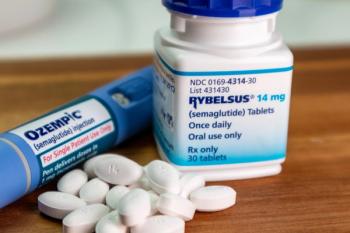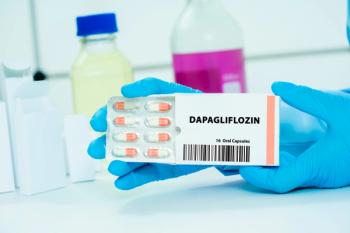
Host Craig Beavers speaks with Steven Dunn about the latest ACC/AHA/ACEP/NAEMSP/SCAI Guideline for the Management of Patients With Acute Coronary Syndromes.

Host Craig Beavers speaks with Steven Dunn about the latest ACC/AHA/ACEP/NAEMSP/SCAI Guideline for the Management of Patients With Acute Coronary Syndromes.

Similar legislation could also address PBM practices in commercial insurance.

Host Craig Beavers spoke with several presenters, researchers, and experts about the key data being discussed at the meeting.

The Protecting Pharmacies in Medicaid Act aims to tackle spread pricing, but other legislation could target different issues.

Patients in the treatment group had a 21% lower risk of cardiovascular death or first heart failure hospitalization overall, but the between-group difference did not meet the threshold for statistical significance for this primary end point.

The trial is the first to test the cardiovascular benefits of an oral glucagon-like peptide-1 (GLP-1) agonist.

The DapaTAVI study is the first trial of a sodium-glucose cotransporter-2 (SGLT2) inhibitor for valvular disease.

The availability of this option could make physicians more comfortable when prescribing ticagrelor, which could help solve the challenge of undertreatment with antiplatelet therapy.

Rivaroxaban offers more predictable dosing, eliminates frequent blood tests, and is less likely to interact with foods.

The results should lead to a guideline update recommending extended treatment with a reduced-dose anticoagulant in this patient population.

The STRIDE trial was first of its kind to evaluate the use of a GLP-1 agonist in PAD management.

Kaite Krell, MPH, discusses the critical role of independent pharmacies and how proposed legislation could address challenges with PBMs.

Optimal glycemic control and medication delivery rely upon proper tools and techniques.

The legislation is expected to improve the financial stability of independent and community pharmacies by ensuring fair reimbursement rates and allowing them to better manage their finances.

Matthew Zirwas, MD, highlights the discrepancy between perceived and actual usage, citing studies that reveal patients often overestimate their compliance.

Although dietary changes have historically been a key approach to managing eosinophilic esophagitis, their limitations highlight the need for pharmacologic treatments.

Matthew Zirwas, MD, addresses the significant financial burden associated with the medication, emphasizing the importance of pharmacists in navigating prior authorizations and access patient support programs.

Patients may have concerns about the boxed warning and other potential adverse effects associated with topical ruxolitinib for atopic dermatitis and vitiligo.

Long-acting injectables offer a promising approach to schizophrenia treatment, but their effective use requires careful management and patient education.

Michael McGuire, PharmD, highlights the importance of early intervention in hospital settings, leveraging manufacturer programs, and navigating complex dosing regimens.

Efficacy and tolerability of topical treatments can vary by region, particularly sensitive areas such as the face and neck.

According to a news release, this marks the first significant innovation in epinephrine delivery for this patient population is more than 35 years.

LAIs offer a variety of benefits, from improved medication adherence and relapse prevention to enhanced quality of life for individuals with schizophrenia.

Pharmacists play a crucial role in understanding and responding to these developments, ensuring patients remain informed about the latest advancements and potential threats.

At week 8, significantly more children, adolescents, and adults who applied 1.5% ruxolitinib cream versus vehicle achieved IGA treatment success.

SPI-1005, a novel anti-inflammatory compound, achieved coprimary end points for efficacy, including improvements in hearing loss and speech discrimination.

Research has demonstrated a reduction in hospitalization risk associated with the use of LAIs, but some barriers can prevent the wider adoption of this approach.

Improvements in baseline for markers of hemolysis (indirect bilirubin, lactate dehydrogenase, and haptoglobin) were observed only in the mitapivat arm.

Despite these concerns, experts have emphasized that the benefits of RSV vaccination outweigh potential risks for older adults, who are at heightened risk of severe RSV-related illness.

Changing the way pharmacists and pharmacy staff think about themselves is key, although providers, payers, and patients must also change how they view the value of pharmacy services.